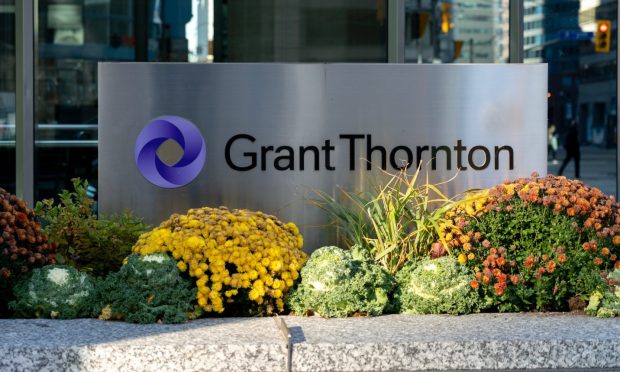Businesses have been working flat out since the start of this new year, adjusting to the whirlwind of challenges as a result of the rapid spread of the Covid-19 Omicron variant.
Thousands of firms which had been preparing to welcome customers and clients over the busy festive period suddenly found themselves having to slash capacity or close altogether, incurring huge losses.
While grant support is available for many of those affected by restrictions, the financial support on offer goes nowhere near compensating them for the losses they have experienced.
This puts so many businesses, livelihoods and jobs in an incredibly precarious position at the start of what was already expected to be a challenging year.
It is essential that as our economy adjusts to coronavirus becoming endemic in society, divergence in the guidance and regulations across the UK is avoided wherever possible.”
The Scottish Chambers of Commerce (SCC) network’s business survey for the last quarter confirmed our predictions.
It revealed the pace of economic recovery and business growth was slowing, following the boom in trade that took place over the summer months as Scottish and UK Covid restrictions were gradually lifted.
Businesses in Scotland have benefited from improved four-nations’ alignment on the rules regarding international travel testing and self-isolation requirements.
It is essential that as our economy adjusts to coronavirus becoming endemic in society, divergence in the guidance and regulations across the UK is avoided wherever possible.
The announcement by the first minister earlier this month of the easing of restrictions on large outdoor events and the more recent removal of remaining curbs on hospitality were, of course, welcome.
But many businesses struggle to understand why offices, for example, remain closed.
Office worker footfall plays an integral role in supporting our town and city economies.
It’s also critical for employees’ morale, as well as their health and wellbeing that they are able to choose where to work in consultation with their employers.
We need to see a firm end date to homeworking requirements set out as soon as possible.
Cost concerns
Although businesses still expect to see growth this year, hopefully taking us back to and beyond pre-pandemic levels, there are growing concerns over the cost of doing business.
Inflation is surging, driving up labour, material and other costs. Loans need to be repaid and the clock is ticking on business rate reductions.
Recruitment challenges are becoming more persistent, with a lack of access to the right skills and talent holding back growth across most sectors.
In addition, business and consumer confidence remains volatile – which slows growth and makes planning ahead increasingly challenging.
We need to see a firm end date to homeworking requirements set out as soon as possible.”
Businesses are seeing enormous rises in energy costs and these are expected to increase further in the coming months.
Similarly, households are experiencing rising costs and this will eventually have a negative impact on consumer spending patterns as levels of disposable income fall.
As we once again enter a period of Covid restrictions getting phased out, we need to see a rebalancing of measures.
We also need to see a guarantee to the end of the start-stop restrictions that damage our businesses and economy so badly.
New relationship built on trust
Businesses want to forge a new relationship with government that places trust back in our hands, and that allows us to grow, invest, create new opportunities and jobs here in Scotland, while expanding our reach globally.
There is more hope and optimism among businesses than we have seen for a long time.
But this isn’t blinkered, and we are realistic the next 12 months will hold yet more twists and turns that will challenge our recovery and return to growth.
SCC will continue to engage with our partners and the Scottish and UK governments to argue our corner and make sure ongoing business support goes where it is needed.
We will also strive to get the certainty and security required to drive up growth and investment.
In addition, we will do our best to ensure that, as we adjust to new ways of working and living, the needs of business remain at the forefront of our decision-makers’ minds.
Businesses and government must use this new opportunity to look forward, while learning from the past.
This will help to create an environment that brings the public and private sectors together in a spirit of collaboration.
It will also help to propel Scotland’s economic recovery towards growth at full tilt.
Global ambitions
Our international outlook and ambition for Scottish business on the global stage remains steadfast.
We are preparing once again to take Scotland to the world by spearheading another landmark trade mission to the World Expo in Dubai in March, further developing this country’s global links, building on new relationships and expanding partnerships.
Firms are optimistic they can adapt to the ongoing challenges they face, and become even more resilient, innovative and creative as we continue to strive towards and deliver the return to economic growth we all want to see.
Liz Cameron is chief executive of the Scottish Chambers of Commerce.












